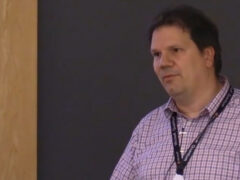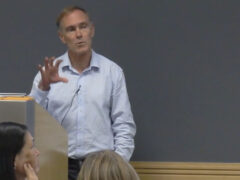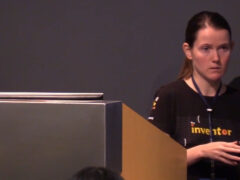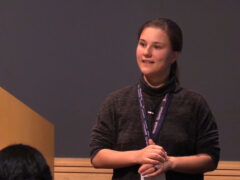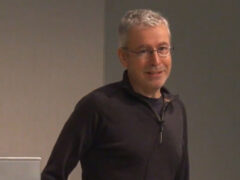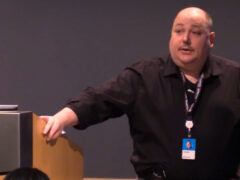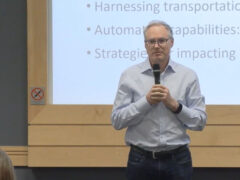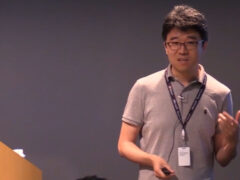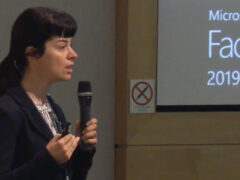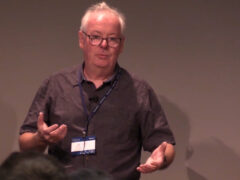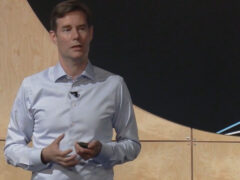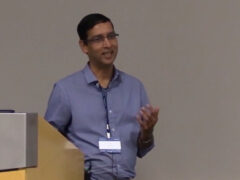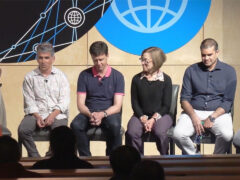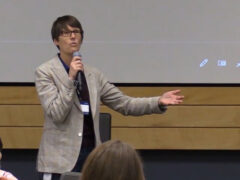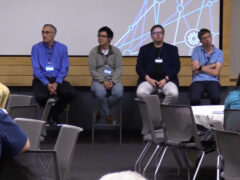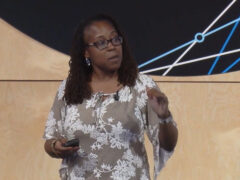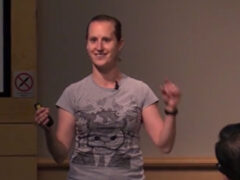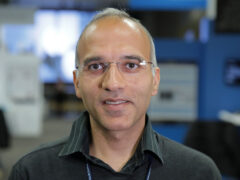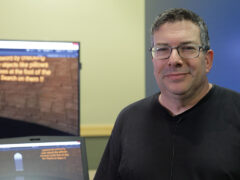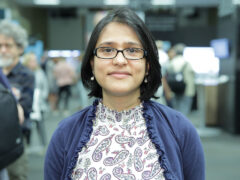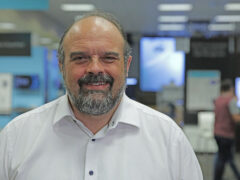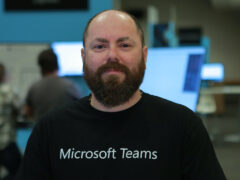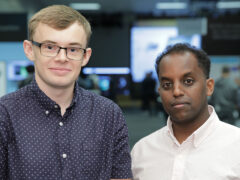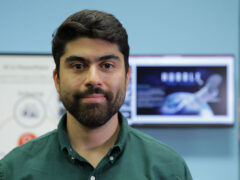Programmability at Cloud Scale
- Gul Agha, Judith Bishop, Philip Bernstein, and Sergey Bykov | Microsoft Research, University of Illinois at Urbana-Champaign, Microsoft
Building interactive services that are scalable and reliable is hard. Interactivity imposes strict constraints on availability and latency, as that directly impacts end-user experience. To support a large number of concurrent user sessions, high throughput is essential. Many mobile device applications are backed by cloud servers and storage, but the current technology for programming cloud applications is tedious and potentially error prone. Developing individual application components is not difficult, but developing an entire system that is scalable and fault tolerant and makes efficient use of resources is far more challenging, especially for mainstream developers who are not distributed system experts. In this session we’ll look at modern approaches to solving these problems. A variety of applications require interactive services and we’ll discuss a few, such as game platforms and Internet of Things.
Speaker Details
Judith Bishop is director of Computer Science at Microsoft Research. Her role is to create strong links between Microsoft’s research groups and universities globally, through encouraging projects, supporting conferences, and engaging directly in research. Her expertise spans programming languages, software engineering, and distributed systems with a strong practical bias. Her current projects are Orleans and Code Hunt, and she worked previously on TouchDevelop and Try F#. She received her PhD from the University of Southampton and was a professor in South Africa for many years, with visiting positions in the United Kingdom, Germany, Canada, Italy, and the United States. She was general co-chair of ICSE 2010 and co-chair of several Microsoft Research summits. She serves frequently on editorial, program, and award committees. She has written 16 books on programming, which have been translated into six languages. Judith received the ACM Distinguished Educator Award in 2014, the IFIP Silver Core and Outstanding Service Award in 2006, and South Africa’s Distinguished Woman Scientist of the Year in 2005.
Philip A. Bernstein is a Distinguished Scientist at Microsoft Research. Over the past 35 years, he has also been a product architect at Microsoft and Digital Equipment Corp., a professor at Harvard University and Wang Institute of Graduate Studies, and a VP Software at Sequoia Systems. During that time, he has published many papers and two books on the theory and implementation of database systems, especially on transaction processing and data integration, which are still the main focus of his research. He is an ACM Fellow, a winner of the ACM SIGMOD Innovations Award, a member of the Washington State Academy of Sciences and a member of the National Academy of Engineering. He received a B.S. degree from Cornell and M.Sc. and Ph.D. from University of Toronto.
Gul Agha is professor of Computer Science at the University of Illinois at Urbana-Champaign. Agha is a Fellow of the IEEE. He served as editor-in-chief of IEEE Concurrency: Parallel, Distributed and Mobile Computing (1994-98), and of ACM Computing Surveys (1999-2007). He has published over 200 research articles and supervised 30 PhD dissertations. His book, Actors, is among the most widely cited in concurrent and distributed computing. Besides work on semantics and implementation of actor languages, Agha’s research group has developed novel coordination languages, methods for software testing (including concolic testing), computational learning for verification, statistical model checking, and Euclidean model checking. In collaboration with civil engineers, he has developed methods for autonomic structural health monitoring (SHM) of civil infrastructure using wireless smart sensor networks. Agha is a co-founder of Embedor Technologies, a company providing solutions for infrastructure monitoring in smart cities.
Sergey Bykov joined Microsoft in 2001 and worked in several product groups, such as e-Business Servers, Embedded Devices, and Online Services, before moving to Research in 2008. He has been working on Project “Orleans” since its inception, and is leading the team that keeps innovating to bring more exciting features to the platform.
-
-

Judith Bishop
Director of Computer Science
-
Jeff Running
-
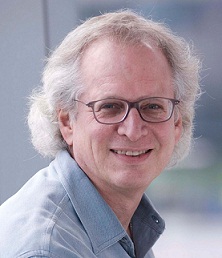
Phil Bernstein
Distinguished Scientist
-
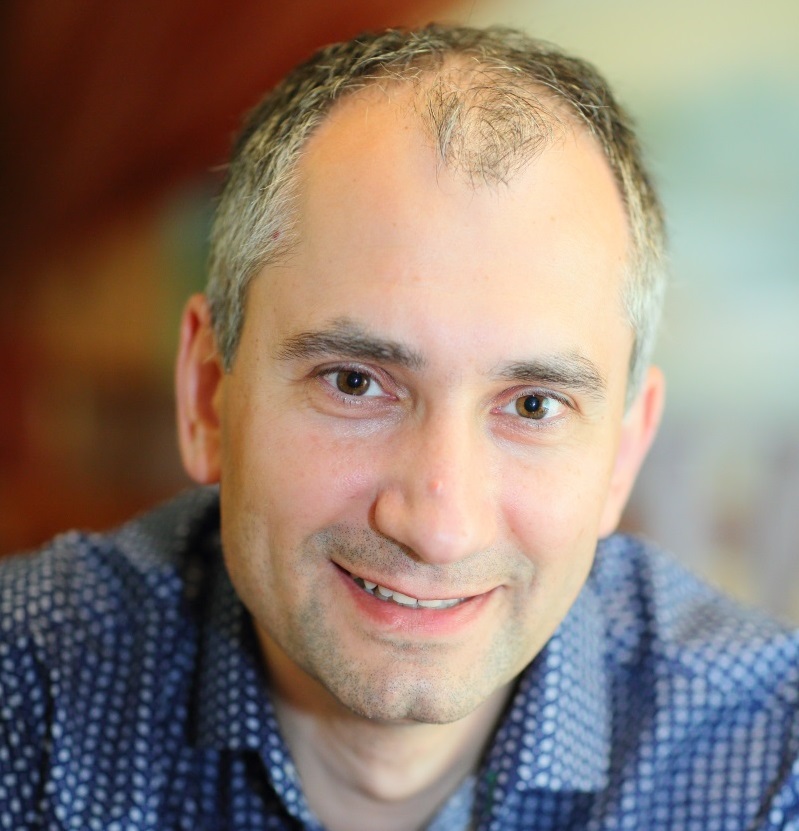
Sergey Bykov
Principal Software Engineering Lead
-
-
Series: Microsoft Research Faculty Summit
-
-
-
Cars, Computing and the Future of Work: Specific topics of mutual interest
- Linda Boyle,
- Ed Doran,
- John Lee
-
-
-
Crowd, Cloud and the Future of Work: Updates from human AI computation
- Pietro Michelucci,
- Lucy Fortson,
- Franco Pestilli
-
-
Cars, Computing and the Future of Work: A UW & MSR Workshop: Welcome and Overview of Projects
- Linda Boyle,
- Ed Doran,
- Eric Horvitz
-
-
Crowd, Cloud and the Future of Work: Welcome and Updates
- Besmira Nushi,
- Ece Kamar,
- Kori Inkpen
-
Empowering People to Achieve More: How Useful a Concept is Productivity?
- Brendan Murphy,
- Yvonne Rogers,
- Steve Whittaker
-
Keynote - The Future of Work And the Power of Data
- Johannes Gehrke
-
Productivity in Software Development
- Neel Sundaresan,
- Margaret-Anne Storey,
- Prem Kumar Devanbu
-
Artificial Emotional Intelligence, Social Systems, and the Future of Collaboration
- Mary Czerwinski,
- Mark Ackerman,
- Gloria Mark
-
Workers of the World, Connect! Tech Innovations and Organizational Change for the Future of Work(ers)
- Mary Gray,
- Jamie Woodcock,
- Louise Hickman
-
Increasing AI Programmer Productivity
- Markus Weimer,
- Sarah Bird,
- Ce Zhang
-
Human-AI Collaboration for Decision-Making
- Besmira Nushi,
- Ayanna Howard,
- Jon Kleinberg
-
Future of Spreadsheeting
- Ben Zorn,
- Felienne Hermans,
- Daniel Barowy
-
Program Synthesis meets Notebooks
- Sumit Gulwani
-
Accessible Virtual Reality
- Eyal Ofek
-
Calendar.help: A Virtual Meeting Scheduling Assistant
- Pamela Bhattacharya
-
Visual Studio IntelliCode
- Mark Wilson-Thomas
-
Microsoft Teams: Collaborate with Any Researcher Anywhere
- Jethro Seghers
-
Project Alava: Programming Webs of Microcontrollers
- James Devine,
- Teddy Seyed
-
AI in PowerPoint
- Kostas Seleskerov


